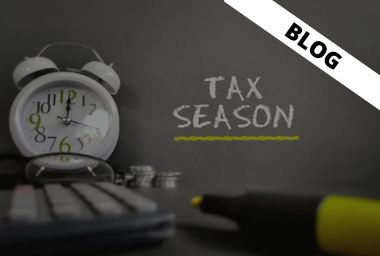Navigating Tax Season: Key Tax Deductions and Credits Every U.S. Consumer Should Know

Tax season can be a complex and overwhelming time for many individuals. However, understanding the key tax deductions and credits available to you can make a significant difference in reducing your tax liability and maximizing your savings. In this comprehensive guide, we will explore the most important deductions and credits that every U.S. consumer should be aware of. By taking advantage of these opportunities, you can navigate tax season with confidence and potentially keep more money in your pocket. Let's dive into the world of tax savings and uncover strategies to optimize your financial well-being.
Common Deductions for Individuals
Discover the most valuable deductions available to individual taxpayers, helping to lower your taxable income and potentially decrease your overall tax liability. Explore the following deductions:
- Medical and Dental Expenses: Understand the criteria for deducting qualified medical and dental expenses, including the threshold and eligible costs that can be included.
- State and Local Taxes (SALT): Learn how you can deduct state and local income taxes, sales taxes, and property taxes, taking advantage of potential deductions based on your location.
- Homeownership Deductions: Explore the deductions related to homeownership, including mortgage interest, property taxes, and points paid on a home purchase or refinance.
- Education-Related Deductions: Discover deductions such as the student loan interest deduction, tuition and fees deduction, and education-related expenses for teachers.
Valuable Tax Credits
Explore the tax credits available to individuals, which directly reduce your tax liability dollar-for-dollar. Learn about the following essential tax credits:
- Earned Income Tax Credit (EITC): Understand the eligibility criteria and requirements for this credit designed to assist low- to moderate-income individuals and families.
- Child and Dependent Care Credit: Discover how this credit can help offset the costs of child and dependent care expenses, allowing you to work or look for employment.
- Retirement Savings Contributions Credit (Saver's Credit): Learn how your contributions to retirement accounts can qualify for a tax credit, encouraging you to save for retirement while reducing your tax burden.
- Residential Energy Credits: Explore credits available for energy-efficient home improvements, including the Residential Energy Efficient Property Credit and the Nonbusiness Energy Property Credit.
Small Business Deductions and Credits
If you are a small business owner or self-employed, there are specific deductions and credits that can greatly benefit you. Explore the following:
- Business Expenses Deductions: Learn about common deductions for business expenses, including home office expenses, travel expenses, and vehicle expenses.
- Qualified Business Income Deduction (QBI): Understand how this deduction allows eligible small business owners to deduct a portion of their qualified business income, reducing their overall tax liability.
- Self-Employment Tax Deductions: Discover deductions available to self-employed individuals for self-employment taxes, health insurance premiums, and retirement contributions.
Retirement Contributions and Deductions
Maximizing your retirement savings not only helps secure your financial future but also provides opportunities for tax savings. Explore the following deductions and credits related to retirement contributions:
- Traditional IRA and Roth IRA Contributions: Understand the tax benefits of contributing to Traditional IRAs and Roth IRAs, including potential deductions and tax-free growth.
- Employer-Sponsored Retirement Plans: Discover the advantages of contributing to employer-sponsored retirement plans, such as 401(k)s and SEP IRAs, including potential deductions and employer matching contributions.
Maximizing Tax Savings: Tips and Strategies
Explore additional tips and strategies to help maximize your tax savings and make the most of available deductions and credits:
- Tax Planning and Timing: Learn how proper tax planning and timing can optimize your deductions and credits, such as timing your expenses and contributions strategically.
- Documenting and Organizing Your Finances: Discover the importance of keeping thorough records and organizing your financial documents to ensure accurate reporting and ease of tax preparation.
- Seek Professional Advice: Consider consulting with a tax professional or certified public accountant (CPA) to maximize your tax savings and ensure compliance with current tax laws and regulations.
Conclusion: By understanding and leveraging the essential tax deductions and credits available to U.S. consumers, you can make informed decisions to minimize your tax liability and maximize your savings. Remember to consult with a tax professional or use reputable tax software to ensure accuracy and compliance with tax laws. With careful planning and utilization of available tax benefits, you can navigate tax season with confidence and optimize your financial well-being. Start exploring the opportunities today and take control of your tax savings.